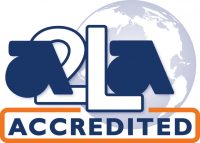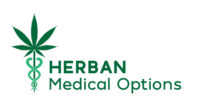Laboratories throughout the world and in a variety of industries get accredited to demonstrate their competency. In the cannabis industry, some states are beginning to require it and many labs get accredited even if their state doesn’t require it. So what does accreditation mean and why is it so important?
 The International Organization for Standardization (ISO) is a standard-setting organization that works to promote industrial and commercial standards. The standards set by ISO are designed to help prove a product’s safety and quality to a certain minimum level.
The International Organization for Standardization (ISO) is a standard-setting organization that works to promote industrial and commercial standards. The standards set by ISO are designed to help prove a product’s safety and quality to a certain minimum level.
The ISO/IEC 17025:2005 standard sets specific requirements to demonstrate the competence of a lab for carrying out tests. It essentially shows customers or regulators that a lab has the skills and scientific know-how to perform testing, certifying the lab is capable. Accreditation means certifying a lab to that standard and is synonymous with both quality and competence of an organization.

The American Association for Laboratory Accreditation (A2LA), founded in 1978, is a non-profit, internationally recognized accreditation body in the United States that offers laboratory and laboratory-related accreditation services and training. They have worked in the cannabis industry to accredit a number of cannabis laboratories to the ISO/IEC 17025:2005 standard. In this series of articles, we sit down with experts from A2LA to learn more about cannabis lab accreditation, why it’s so important and some of the challenges labs face when seeking accreditation.
In the first part of this series, we sit down with Michelle Bradac, senior accreditation officer at A2LA, to learn the basics. Michelle earned a bachelor’s degree in Biology at Towson State University and then attended Hood College, earning a master’s certificate in Regulatory Compliance in Biomedical Science. She has worked at A2LA for eight years, assisting in the accreditation of food testing, environmental testing and cannabis testing laboratories to ISO/IEC 17025, as well as performing quality system assessments. She also facilitates a number of accreditation programs including Field Sampling Measurement Organizations, STAC (Air Emissions) and Cannabis Testing. Bradac is also a member of the ASTM Cannabis Working Group and the ACIL Cannabis Working Group.
In the next part of this series, we will hear about specific requirements in states, some of the benefits of using ISO/IEC 17025 and the influx of start-up or novice testing laboratories.
CannabisIndustryJournal: What is Laboratory Accreditation?
Michelle Bradac: Laboratory accreditation is a formal means of determining and recognizing the technical competence of laboratories to perform specific types of testing, via the use of an independent third party accreditation body. It provides laboratory users a mechanism to identify and select reliable testing organizations. Use of ISO/IEC 17025 as a basis for laboratory accreditation is internationally recognized as THE conformity assessment standard to which laboratories are accredited; it is used in the USA by both Public (State, local, federal (FDA, USDA, CDC, DoD and EPA) and private laboratories for testing of foods & feeds, drugs, cosmetics, tobacco, natural products and cannabis (among other materials and products).
CIJ: How does laboratory accreditation benefit the cannabis testing laboratory?
Michelle: It provides a framework for continuous improvement and self-correction where the cannabis testing laboratory data management system is independently reviewed and blinded sample Proficiency Testing is encouraged.
CIJ: How does laboratory accreditation benefit the medical cannabis prescribing physician?
Michelle: The physician gains assurance that the dosage and concentrations of material being prescribed is what the label says it is and that the product is safe for use. This is especially important in working with patients that are immunocompromised.
CIJ: How does the testing of medical cannabis by an accredited laboratory benefit the patient?
Michelle: The patient gains increased confidence that the medication is going to be both safe and effective.
CIJ: What specific challenges does A2LA face in accrediting cannabis testing laboratories?
Michelle: Much of the typical infrastructure is lacking or only now being developed. This ranges from proficiency testing programs, Reference Material Producers, method development and sampling procedures. There is also difficulty in ensuring that laboratories are appropriately validating methods in states where cannabis product is not yet available.
CIJ: Why is A2LA the optimal choice for ensuring the quality and reliability of the results produced by medical marijuana testing laboratories?
Michelle: A2LA has by far the most experience as an accreditor of laboratories that perform testing of natural plant products. We have been performing assessments of and granting accreditation to these types of laboratories for over twenty years. This results in our staff and our assessor corps who are then able to provide valuable insight and technical sophistication that other accreditation bodies do not have. Specific to the cannabis industry, A2LA is also represented in all the major standards development organizations, tradeshows and industry groups; which strengthens our understanding of the industry and ability to assist our customers towards meeting their goal of obtaining accreditation.
Opinions expressed the above syndicated article by Aaron Biros are for informational purposes only and not necessarily the opinion of Herban Medical Options.
For full article and information, visit: Source

